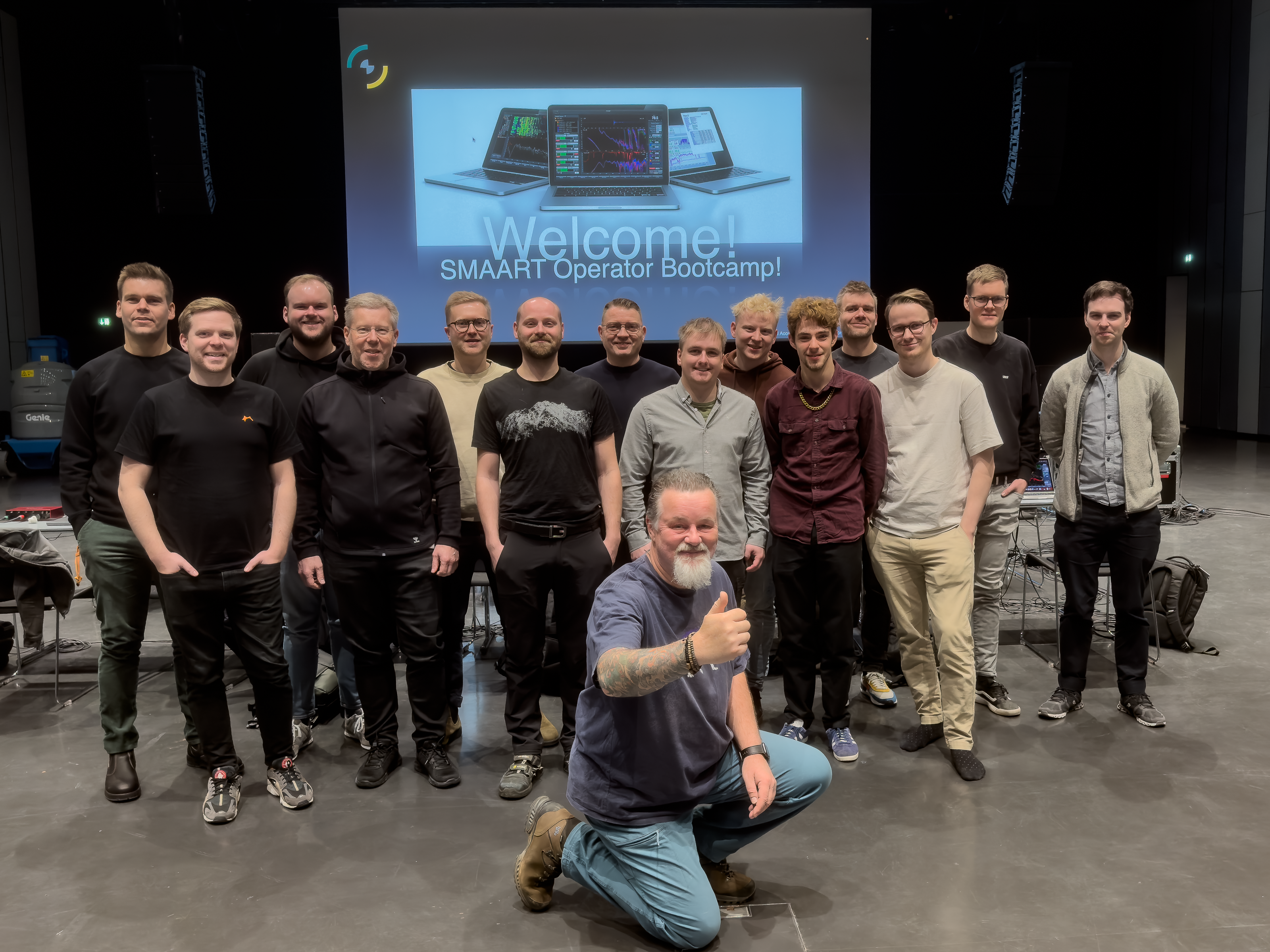
Arnar Markusson, Thorhallur Vilbergsson, Johann Runar Thorgeirsson, Hrannar Kristjansson, Jón Örn Eiríksson, Finnur Ragnarsson, Throstur Albertsson, Róbert Steingrímsson, Gylfi Bragi Guðlaugsson, Sveinn Reynir Pálsson, Teitur Ingi Sigurðsson, Árni Sigurðsson, Ernir Thor, Sölvi Karlsson & Thomas Züllich
In a remarkable convergence of engineering excellence and a commitment to better sound quality, a four-day intensive BootCamp under the banner of SMAART (System Measurement Analysis for Acoustic Real-time Testing) was successfully conducted at Harpa, Reykjavik, Iceland. The event drew 14 highly motivated engineers who are now equipped to contribute to making Iceland and the world a better-sounding place. The BootCamp was conducted under the expert guidance of Mr. Thomas Züllich.
Event Overview:
Location: Harpa, Reykjavik, Iceland The iconic Harpa, an architectural gem situated on the waterfront of Reykjavik, provided a breathtaking backdrop for this event. The state-of-the-art facility offered an ideal setting for participants to delve into the intricacies of acoustic engineering.
Participants: Fourteen engineers with diverse backgrounds and experiences attended the SMAART BootCamp. The group was comprised of seasoned professionals and young talents eager to expand their knowledge in acoustic analysis and sound engineering. The blend of experience and fresh perspectives fostered a rich learning environment.
Instructor: Thomas Züllich Mr. Thomas Züllich, an internationally renowned expert in the field of acoustics, served as the lead instructor for the BootCamp. His extensive experience and expertise provided invaluable insights to the participants. His guidance and mentorship were instrumental in ensuring the success of this event.
BootCamp Agenda:
The BootCamp featured a comprehensive agenda designed to cover various aspects of acoustic analysis and system measurement. The program included:
- Basic Acoustical Principles: Participants were introduced to fundamental concepts of acoustics, providing a strong foundation for the subsequent sessions.
- Sound Measurement Techniques: This segment focused on measurement equipment, techniques, and practical hands-on exercises using SMAART software.
- Acoustic System Calibration: Engineers learned to calibrate audio systems to achieve optimal performance and consistent sound quality.
- Live Sound Optimization: The BootCamp delved into real-world applications, emphasizing sound optimization in live events and concerts.
- Practical Case Studies: Participants were presented with case studies showcasing real-world challenges and solutions in sound engineering.
Outcomes and Achievements:
The SMAART BootCamp at Harpa, Reykjavik, under the instruction of Mr. Thomas Züllich, yielded several notable outcomes:
- Skill Enhancement: Participants gained a deep understanding of sound analysis, measurement, and optimization, enabling them to make informed decisions to improve sound quality.
- Networking: The event provided a platform for engineers to connect and share experiences, creating a valuable professional network in the field of acoustics.
- Impact on Iceland: With 14 newly trained engineers, Iceland can expect an improvement in the quality of sound at events, concerts, and public spaces. This will contribute to enhancing the overall acoustic experience for both residents and tourists.
Future Prospects:
The success of the SMAART BootCamp at Harpa, Reykjavik, with Thomas Züllich as the lead instructor, has set a promising precedent for the future. The participating engineers are now equipped with the knowledge and certification necessary to make Iceland and the world a better-sounding place. They are poised to enhance the acoustic environment in various sectors, including live events, sound recording, and architectural design.
In conclusion, the SMAART BootCamp at Harpa has not only enriched the skill set of the participating engineers but also marked the beginning of a journey toward making Iceland a global hub for exceptional sound quality. This event exemplified the commitment of professionals in Reykjavik to push the boundaries of acoustic engineering, and we look forward to witnessing the positive impact this group of engineers, under the guidance of Mr. Thomas Züllich, will have on the soundscape of Iceland and beyond.